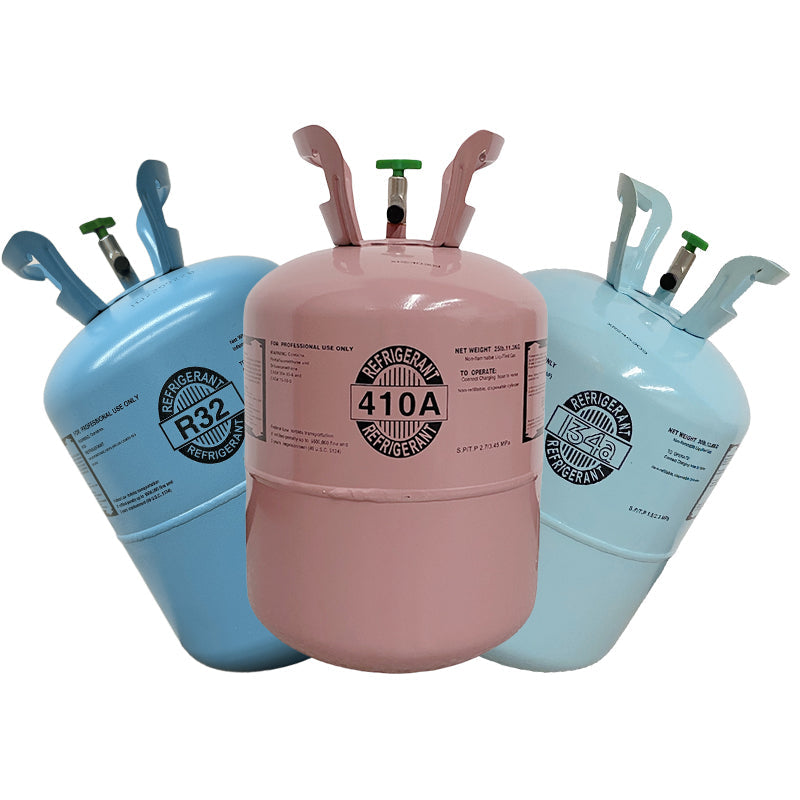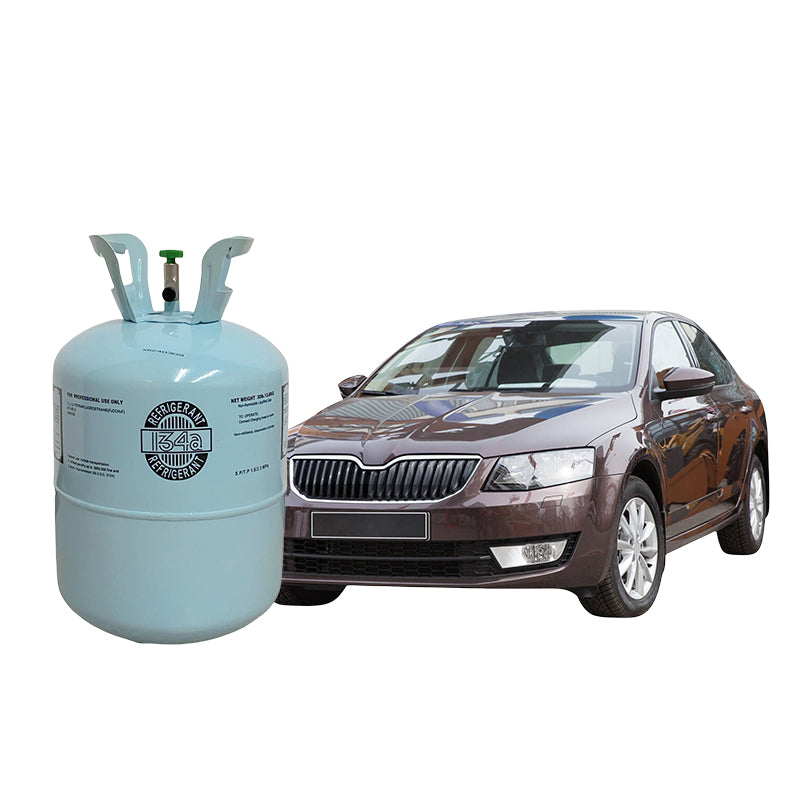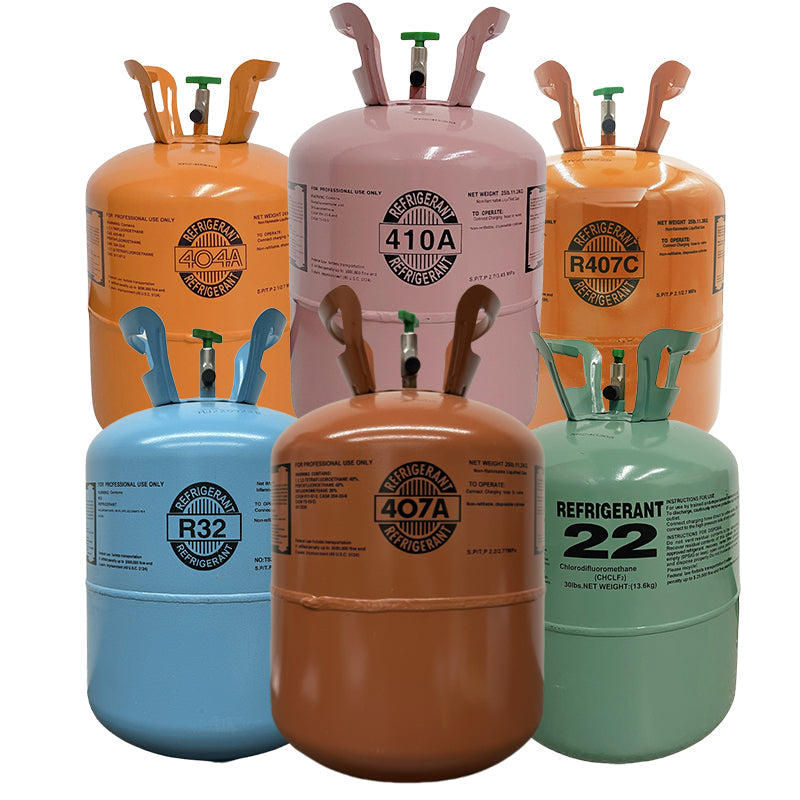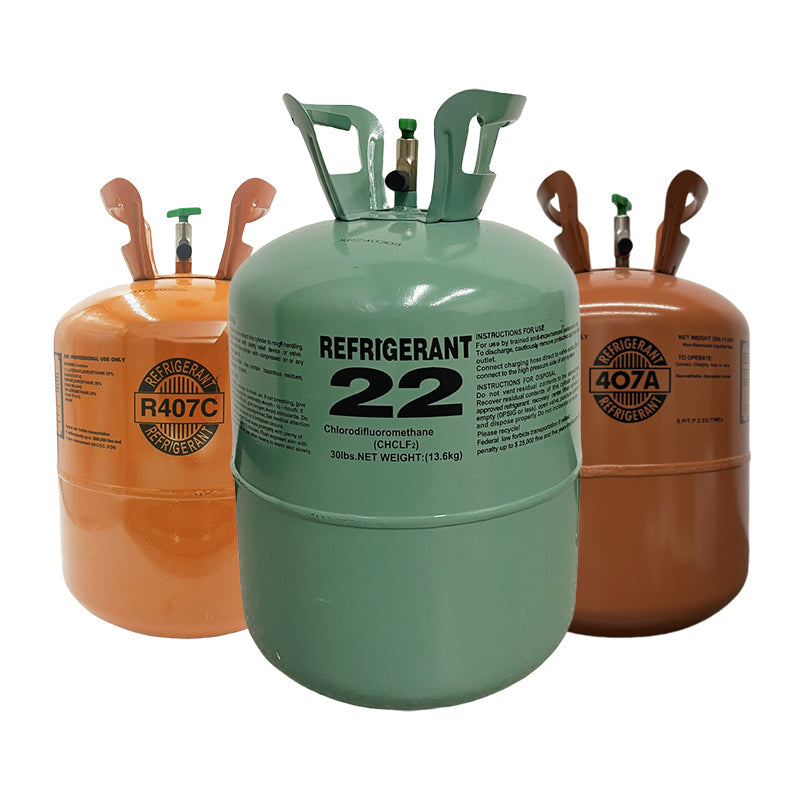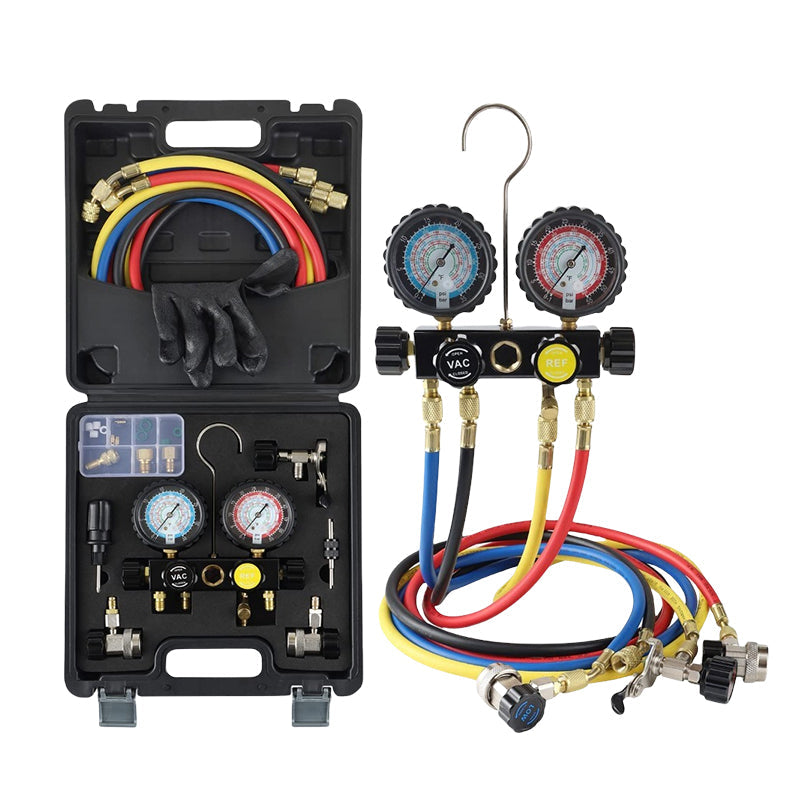2025: new tariffs deal a huge blow to the U.S. refrigerant market
In 2025, the refrigerant industry faces unprecedented challenges due to a new round of tariffs imposed by the US on imported chemicals. The tariffs cover a wide range of mainstream refrigerants including R22, R410A, R404A, R32, R407C, R407A, and R134A, directly driving up prices and disrupting supply chains.
This article takes an in-depth look at the impact of these changes on HVAC professionals, refrigeration contractors, automotive service companies and the average homeowner.
Tariff hikes: directly driving up costs and tightening supplies
The recently implemented tariff policy focuses on a wide range of imported chemicals, many of which are core components or complete blends of common refrigerants. This is particularly hard on the U.S. market, which relies heavily on imported refrigerants.
For example, R410A refrigerant (widely used in residential and commercial air conditioning) and R134A refrigerant (a key component in automotive air conditioning) have been hard hit. Higher tariffs have forced distributors to increase their selling prices, which in turn has led to higher end prices for products such as R407C refrigerant and R32 refrigerant.
Logistically, supply stability of key categories such as R404A and R407A refrigerants has been further reduced due to supply chain bottlenecks and customs delays.

R22 refrigerant: traditional refrigerant in the phase-out continue to pressure
Although R22 refrigerant (commonly known as Freon) has been phased out for new systems, its maintenance demand in old systems is still very large. With the already high price of reclaimed R22, coupled with new tariffs, the cost has risen further. This puts HVAC service companies in a dilemma when it comes to servicing older equipment: trying to extend the life of the equipment, while having to deal with customers' questions about the high cost of maintenance.
Alternative Refrigerants Also Affected
Many refrigerants that are considered to be environmentally friendly alternatives, such as R32 refrigerant (used in energy-efficient inverter air conditioners) and other low GWP (Global Warming Potential) products, are not immune to the tariffs. Most of the new refrigerant blends, such as R407C and R407A, will still have to be imported from overseas, increasing both their cost and market price. This poses a challenge to commercial refrigeration companies, housing upgrades and contractors' budgetary control.
Long-term impact: supply strategies and system upgrades to be reassessed
If these tariffs persist or even expand, HVAC professionals will need to adjust their sourcing and inventory strategies, and even change the types of refrigerants they recommend to their customers. Some companies may increase their reliance on local suppliers or gradually switch to natural refrigerants (such as CO₂ or ammonia) and new ultra-low GWP systems to minimize future risks.
For the automotive servicing sector, an increase in the price of R134A refrigerant will have a direct impact on the cost of air conditioning services, which in turn will influence consumer preferences and lead to more consideration of hybrid or electric models. Similarly, homeowners may accelerate their decision to adopt energy-efficient HVAC systems in the face of escalating service costs.

Conclusion: Finding Certain Solutions in Uncertain Times
Whether you're currently using R410A refrigerant, R134A refrigerant, or considering upgrading an older system with R407A refrigerant, it's never been more important to be aware of changes in policy and to think ahead.
At RefrigerationGo, we are committed to providing our customers with reliable refrigerant products and timely, professional market information to help you navigate through a volatile market.
Visit RefrigerationGo.com today to discover our full range of refrigerants:
R22 refrigerant: for traditional central air conditioning systems
R410A refrigerant: the preferred choice for next-generation residential and commercial air conditioners
R404A refrigerant: standard for commercial refrigeration systems
R32 refrigerant: ideal for energy-efficient and environmentally friendly air conditioners
R407C refrigerant: suitable for heat pumps and multi-unit central air conditioners
R407A refrigerant: energy-saving retrofit for old systems
R134A refrigerant: the core refrigerant of automobile air conditioning system.
Let's take on the challenge together and ensure that your cooling systems continue to operate efficiently against a backdrop of fluctuating prices and unstable supply.

